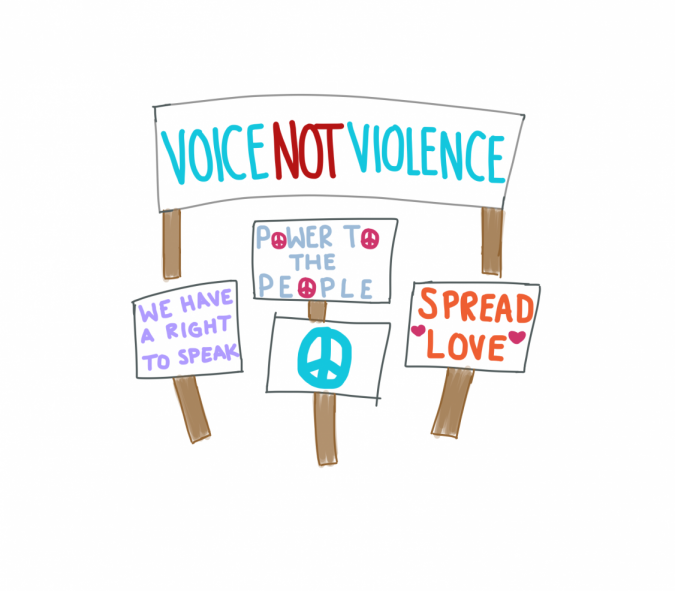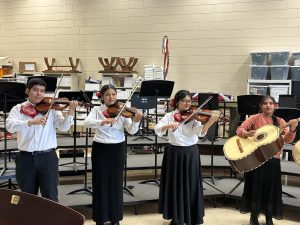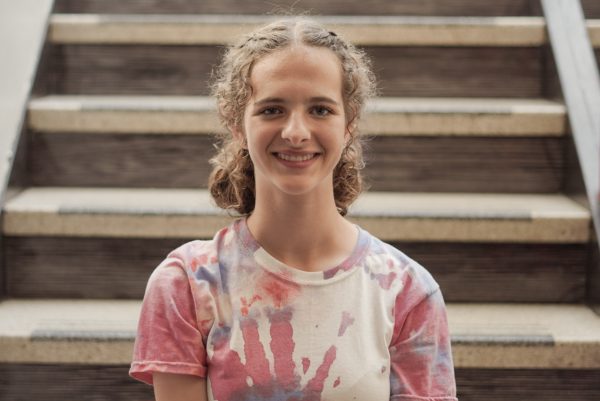Should the First Amendment apply to college campuses?
All institutions must honor the first amendment and allow their students, employees, or members to exercise their right to free speech.
January 25, 2018
College students have been known to use the First Amendment to start protests on school campuses since they have that independence to fight for what they believe in.
The media is the perfect way for them to execute their rights of the First Amendment.
Whether it’s posts on social media, newscasts, or any other way to utilize the media, students have dove right into the vast opportunities to voice their opinions.
There have been many cases in which college students have utilized the First Amendment on campus ground. In 1969, college students were largely known for their protests for the Vietnam War.
Many cases have broken school rules due to violent acts, profanity, harassment, and other actions that made school officials question the First Amendment and put restrictions in a school setting.
But should there be limitations to this right?
In a 2012, the Keefe v. Adams case went into effect. Student Craig Keefe at Central Lakes College-Brainerd Nursing School published Facebook posts concerning work partners, alcohol, and another student made a complaint about him.
His posts consisted of profanity towards a classmate, and sensitive jokes on anger management that made viewers of the post feel discomfort.
The school expelled Keefe for his social media posts even though he was one semester away from graduating. They claimed that he violated student conduct standards. Since this case came out, students have not been so keen on colleges punishing students for their social media posts.
“If I have a free speech zone on campus, why can’t I have a free speech zone off campus?” Winthrop University student Kandace Washington asked.
According to legal scholar Alexander Meiklejohn, the First Amendment created an “equality of status in the field of ideas.”
This right prevents the states to seize people from public discourse for what they want to voice to the world. It promises all people, even college students, to pursue in the equal right of public opinion.
Some believe that this right has been misguided and taken to extreme levels that are unsafe on campus grounds, but those instances should not set limitations for all students who want to explore the First Amendment and fight for what they believe in.
I expect to be able to voice my own opinion on the college I attend.
If I disagree with a politician or an issue that is controlled by our government, I should be able to speak up for what I believe in.
“I think students shouldn’t be limited to what they can and can’t do when it comes to protesting,” senior Joanna Avalos said. “At that age, you should already know what is considered school appropriate. Not everyone is going to start violence.”
Even more so, when students are given restrictions on what they can and can’t do on school grounds, they are mostly likely going to challenge those restrictions by finding loopholes to them.
For example, if a student is told they cannot protest on school property, they may set up their protest right outside of their school’s property.
It doesn’t make sense to restrict college students when it comes to their freedom of speech. At their age, they are adults whose opinions and voices matter, especially when it comes to politics.
Isn’t the goal of a school to educate students in the first place? Indulging into governmental rights is a great way for students to understand what it means to be a citizen of the United States.









